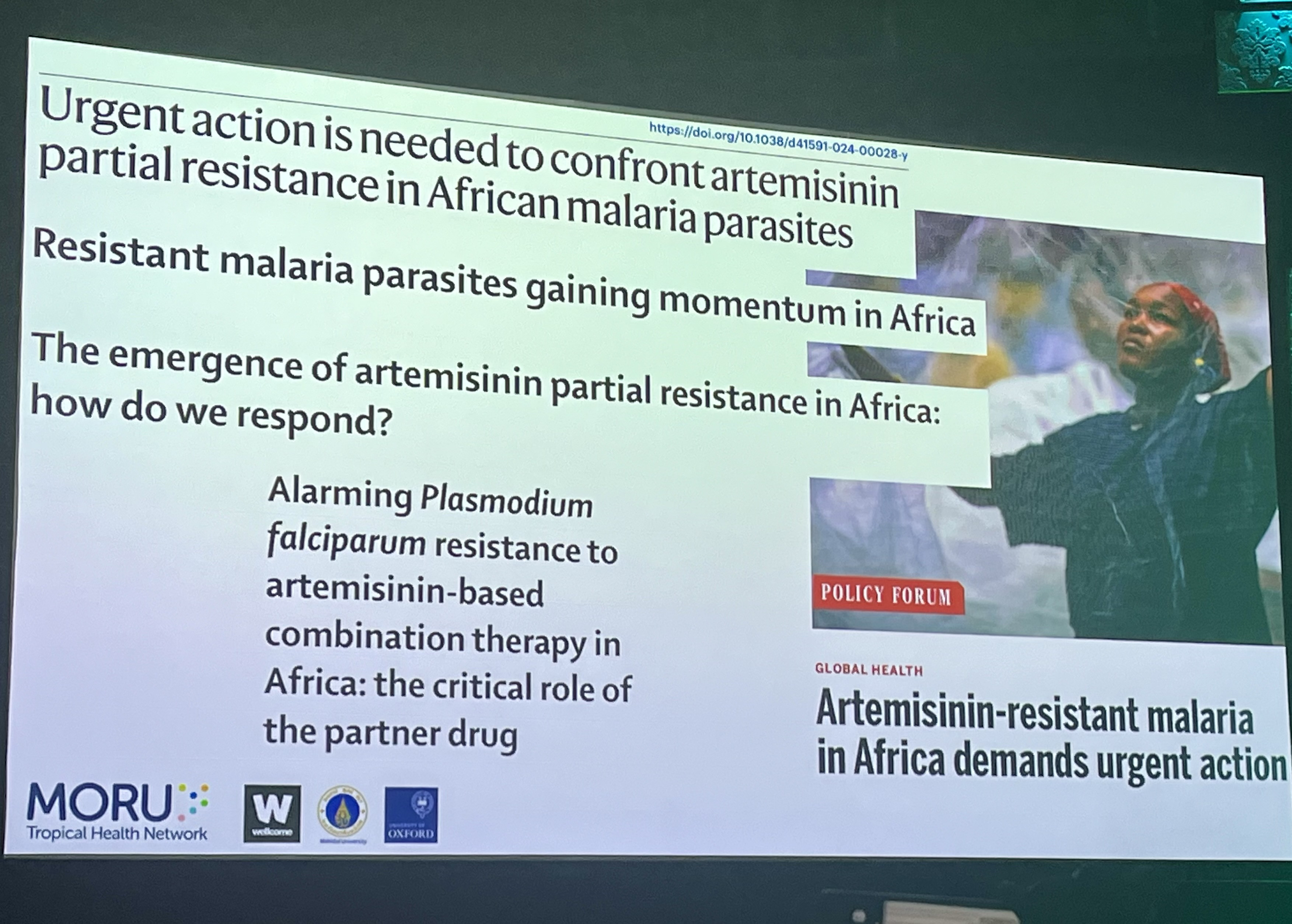ASTMH Annual Meeting 2025
blogMaking a Case for Using Three-Drug Combinations to Combat Artemisinin Resistance in Africa
By: Matthew Davis, Burness

A team of malaria researchers working in Asia and Africa presented evidence Thursday at #TropMed24 in support of deploying a three-drug combination as a way to at least slow the spread of resistance that is now threatening the viability of two-drug artemisinin-based malaria treatments in Africa.
Another study presented Thursday provided the first evidence to date of artemisinin resistance in young African children suffering from serious infection.
“We have a chance here to make sure we don’t let artemisinin resistance create a catastrophe” in Africa, said Mehul Dhorda, coordinator of clinical trials in Africa for the Developing Triple Antimalarial Combination Therapies or DeTACT project. “Let’s make some noise about this problem and make sure it gets the funding it needs.”
Dhorda presented evidence from a trial of a three-drug artemisinin combination therapy (ACT) that included sites in eight African countries. It found that treating malaria patients with a triple ACT that combines the artemisinin drug artemether alongside lumefantrine and amodiaquine was just as safe and effective as a standard two drug ACT.
Researchers involved in the DeTACT project note that it’s important to show triple ACTs are just as safe and effective as standard ACTs before they can be considered as a strategy for slowing the spread of artemisinin resistance. DeTACT project lead Arjen Dondrop, deputy director of the Mahidol Oxford Clinical Research Unit (MORU) in Thailand, said triple ACTs could be an effective approach, because confronting malaria parasites with three drugs that each have different mechanisms of action should make it harder for them to develop genetic mutations that confer artemisinin resistance.
The arrival of artemisinin therapies some 20 years ago was a major advance in the global fight against malaria due to their power to rapidly cure infections — and because malaria parasites had developed resistance to other drugs. But the current approach to combating resistance — pairing artemisinin medications with one other malaria drug — appears to be faltering. In 2008, there were reports from Cambodia noting partial resistance to artemisinin, and by 2013 the drug was completely failing in patients in Southeast Asia. Partial artemisinin resistance is now emerging in sub-Saharan Africa, and without a drug to take its place, the stakes are much higher.
Africa accounts for 95% of the 608,000 people who die from malaria each year — most of them children under age 5. As high as that is, malaria experts warn that deaths could rise substantially if artemisinin medications lose their efficacy.
Another study presented Thursday at #TropMed24 is likely to intensify those concerns. Researchers working in Uganda provided the first evidence to date of artemisinin resistance in young African children suffering from serious infections.
The study, which also was published in the Journal of the American Medical Association (JAMA), documented partial resistance in 11 of 100 children, ages 6 months to 12 years, who were being treated for complicated falciparum malaria – that is, malaria with signs of severe disease.
“This is the first study from Africa showing that children with malaria and clear signs of severe disease are experiencing at least partial resistance to artemisinin,” said Chandy John, MD, MS, director of the Indiana University School of Medicine Ryan White Center for Infectious Diseases and Global Health, who is a co-author of the study along with colleagues Ruth Namazzi and Robert Opoka from Makerere University in Kampala in Uganda, Ryan Henrici from University of Pennsylvania, and Colin Sutherland from London School of Hygiene & Tropical Medicine.
John, who is a former ASTMH president, said, “It’s also the first study showing a high rate of African children with severe malaria experiencing a subsequent malaria episode with the same strain within 28 days of standard treatment with artesunate, a derivative of artemisinin and an artemisinin combination therapy (ACT).”
Dondrop, the DeTACT project lead, said that as a practical matter, deploying triple ACTs as a standard treatment for malaria will require developing what is known as a “fixed-dose” medication, meaning a single pill that combines three malaria drugs.
Michelle Xiong with Shanghai Fosun Pharmaceutical Company discussed the company’s work with a partnership led by MORU that is developing and testing a fixed-dose triple ACT consisting of artemether alongside lumefantrine and amodiaquine. She said the hope is that a phase 3 trial will be completed in 2025 and that, if results are positive, regulatory approval and WHO prequalification will be complete by 2027.
“We believe this could provide an operational solution to control the spread of artemisinin resistance in Africa,” Xiong said.
Related Posts
By: Matthew Davis, Burness